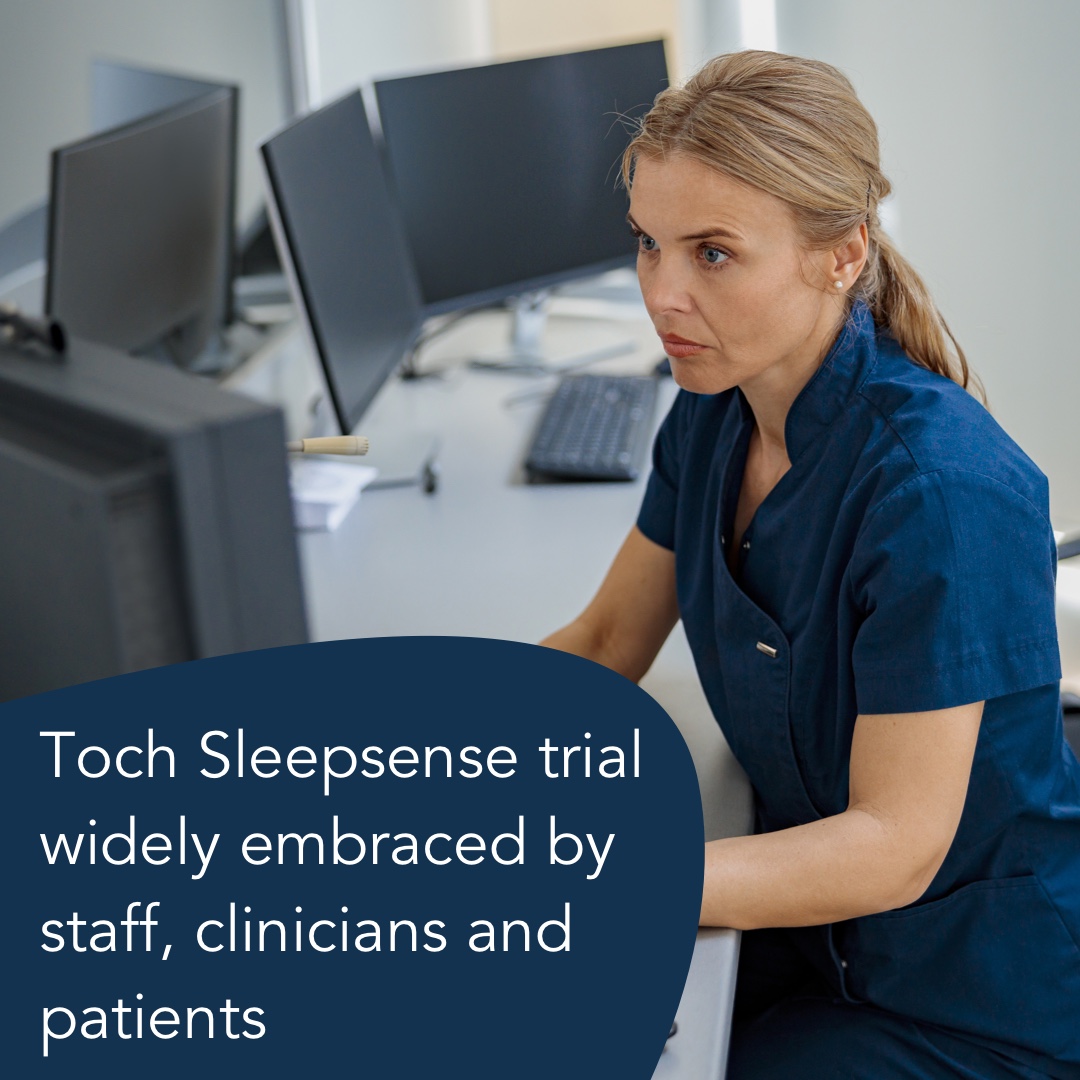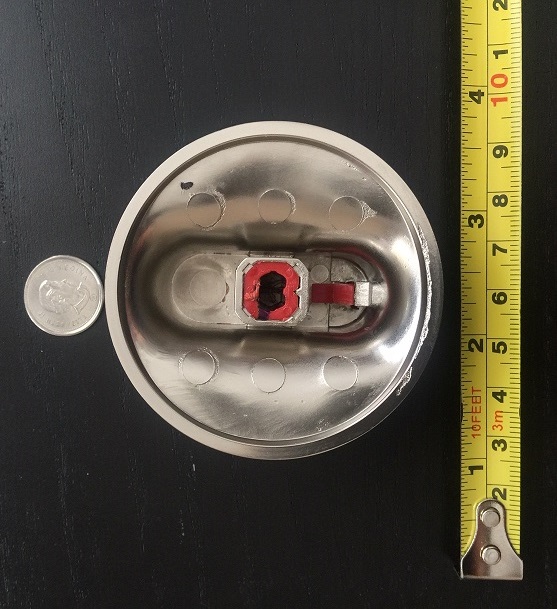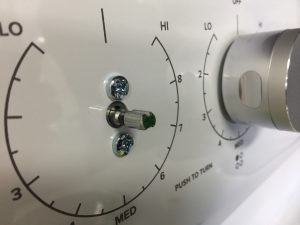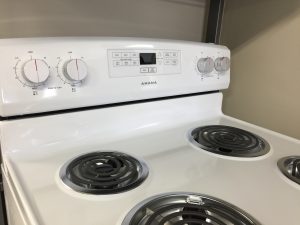 Tochtech is thrilled with the outcomes of an important pilot project at UBC Hospital where Toch Sleepsense was trialed in an acute care setting. The Sleepsense system and the data it collected and reported was overwhelmingly embraced by care staff, clinicians, and patients and their families. The project also identified ways Sleepsense supported improved clinical decision making, improved staff efficiency and quality of life for patients.
Tochtech is thrilled with the outcomes of an important pilot project at UBC Hospital where Toch Sleepsense was trialed in an acute care setting. The Sleepsense system and the data it collected and reported was overwhelmingly embraced by care staff, clinicians, and patients and their families. The project also identified ways Sleepsense supported improved clinical decision making, improved staff efficiency and quality of life for patients.
The following is an article of the project outcomes and findings as published in oneVCH, VCH’s internal staff website:
New, innovative Canadian technology is helping to improve sleep quality and patient care at UBC Hospital’s Short-Term Assessment and Treatment (STAT) Centre.
Sleepsense is a non-wearable bed sensor that allows staff to collect real-time sleep data without disturbing patients’ rest. The sensor captures cardiorespiratory information and notes subtle body movements from where it is positioned underneath the foot of the bed and provides timely alerts for staff to reduce fall risks.
“Sleep quality is a critical component of health and recovery for hospitalized older adults, yet it can be an overlooked aspect of patient care in general,” says Cromwell Acosta, Registered Nurse and Sleepsense project lead. “This new technology enables our team to monitor patients with far less disruption, making for a much better experience for us and our patients.”
To date, nurses and care staff at the STAT Centre have used traditional nighttime monitoring methods which involved waking up the patient or making a subjective assessment without patient input. These checks could be disruptive to patients and may not always provide accurate assessments.
The new approach offers detailed sleep metrics to support tailored care plans. In one instance, a patient who was experiencing chronic insomnia and dealing with mental health challenges took sleep pattern results from Sleepsense into consideration when deciding to accept cognitive behavioural therapy (CBT) and medication trials.
The three-month Sleepsense trial involved collaboration between geriatricians, physicians, psychiatrists, nurses, care staff, pharmacists and allied health. Both staff and patients found the sensor user-friendly, with minimal sleep disruption and efficient data retrieval. Staff appreciated how the data supported improved clinical decision-making while reducing their workload.
“This work is fundamental to our commitment to finding innovative solutions to help patient recovery, decrease length of hospital stay and improve quality of life of the hospitalized older adult patient population across VCH facilities and beyond,” Cromwell says.



